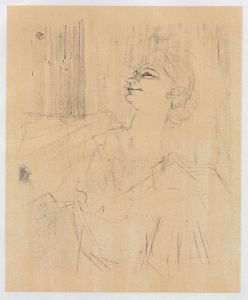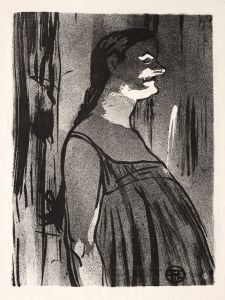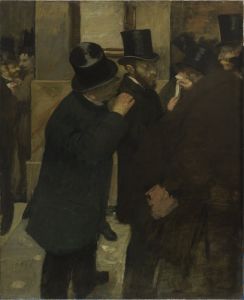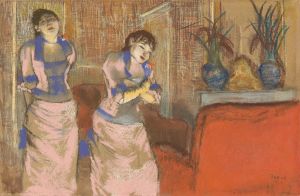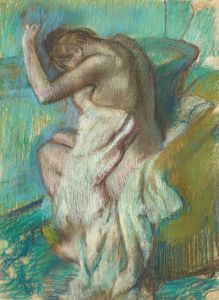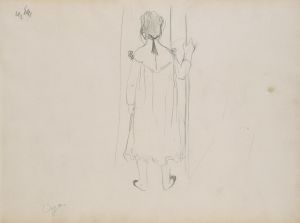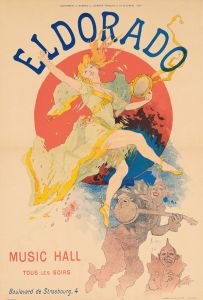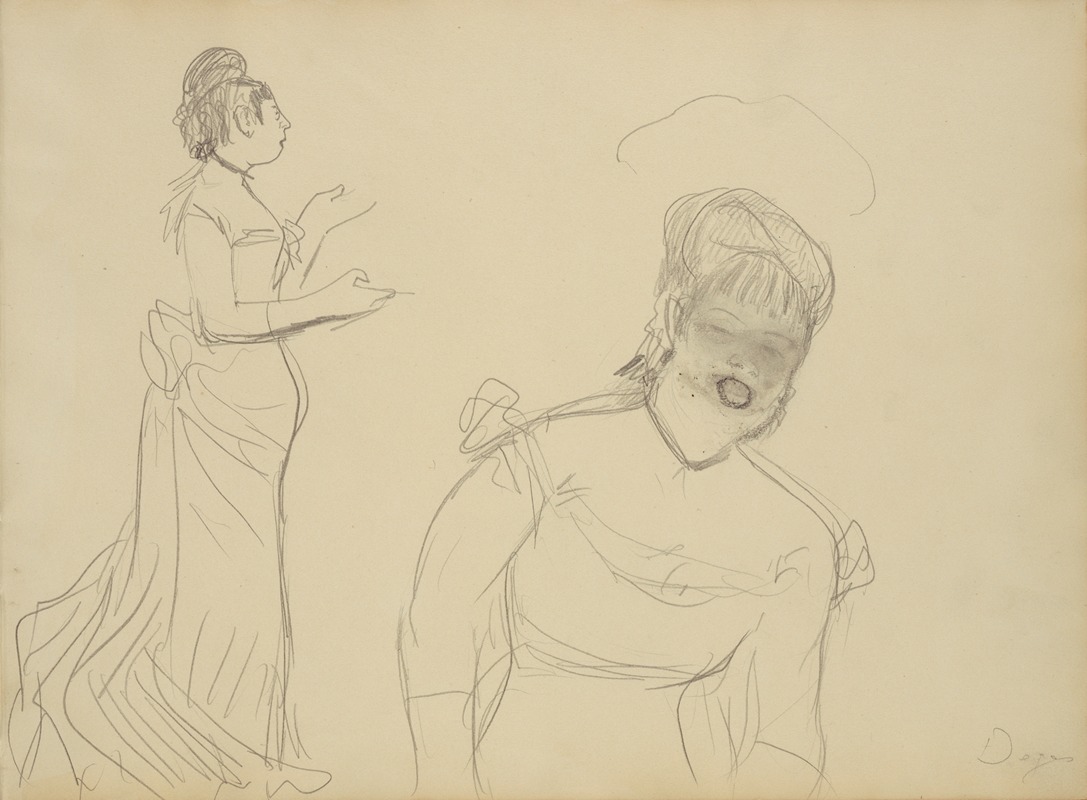
Sketches of a Café Singer
A hand-painted replica of Edgar Degas’s masterpiece Sketches of a Café Singer, meticulously crafted by professional artists to capture the true essence of the original. Each piece is created with museum-quality canvas and rare mineral pigments, carefully painted by experienced artists with delicate brushstrokes and rich, layered colors to perfectly recreate the texture of the original artwork. Unlike machine-printed reproductions, this hand-painted version brings the painting to life, infused with the artist’s emotions and skill in every stroke. Whether for personal collection or home decoration, it instantly elevates the artistic atmosphere of any space.
Edgar Degas, a prominent French artist associated with the Impressionist movement, is renowned for his works that capture the nuances of modern life in the late 19th century. One of his lesser-known works, "Sketches of a Café Singer," exemplifies his keen interest in depicting the vibrant social scenes of Paris, particularly those involving music and performance.
"Sketches of a Café Singer" is a series of drawings that Degas created to explore the lively atmosphere of Parisian café-concerts, which were popular entertainment venues during his time. These establishments combined elements of a café and a concert hall, offering patrons a place to enjoy drinks while watching live performances. The café-concerts were known for their informal and convivial atmosphere, attracting a diverse audience from various social strata.
Degas's sketches capture the essence of these venues, focusing on the performers, particularly the singers who were central to the entertainment. His interest in such subjects is consistent with his broader artistic focus on capturing fleeting moments and the movement of the human figure. Degas was known for his ability to convey the dynamism of modern life, and his café singer sketches are no exception.
In these sketches, Degas employs a variety of media, including pencil, charcoal, and pastel, to create quick, expressive lines that suggest movement and spontaneity. The sketches often depict the singer in mid-performance, capturing the gestures and expressions that convey the emotion and energy of the moment. Degas's use of light and shadow adds depth and dimension to the figures, enhancing the sense of immediacy and presence.
The café singer sketches are part of Degas's broader exploration of the theme of performance, which also includes his famous ballet dancer series. Both subjects allowed Degas to study the human form in motion, a central concern of his artistic practice. His interest in performers also reflects the cultural milieu of Paris during the late 19th century, a time when the city was a hub of artistic and social innovation.
Degas's sketches of café singers are significant not only for their artistic merit but also for their documentation of a particular aspect of Parisian life. They provide insight into the popular culture of the time and the role of entertainment in the social fabric of the city. Through these works, Degas offers a glimpse into the world of the café-concert, capturing its vibrancy and the allure of its performers.
While "Sketches of a Café Singer" may not be as widely recognized as some of Degas's other works, they are an important part of his oeuvre, showcasing his skill in capturing the essence of modern life. These sketches reflect Degas's enduring interest in the interplay between art and society, and his ability to convey the spirit of his age through his art.






